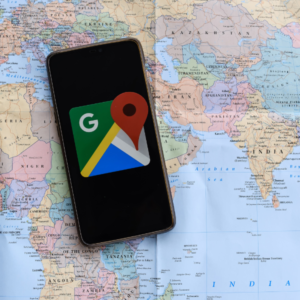Local Business Listings | Improving Online Presence
Want to get more customers? Local business listings are the key. They're what makes it possible for people to find your business, which is the first step in the customer experience (CX) process.
It's super important to keep your local business listings up to date and consistent across the internet. This helps your business show up higher in search results and gets you in front of more potential customers who are likely to become paying customers.
What are local business listings and why are they important?
A local business listing is basically an online profile of your business with your name, address, and phone number (NAP). It helps people find your business when they search online, kind of like an online directory.
Your local business listing should include your NAP, as well as other useful information like your website URL, hours of operation, business category, pictures or videos of your business, a short description of what you do, and accepted methods of payment. This helps potential customers easily connect with your business when they find you online.
If your listings are inconsistent, it's less likely that your business will be discovered by potential customers when they search online. That's why it's important to consistently manage and update your local listings. This ensures that your business is visible and easy to find for prospects searching for what you offer.
The impact of voice searches on local business listings
It's becoming more challenging for local businesses to rank on Google, especially with the rise of mobile searches.
On a desktop, the search results page displays 10 results, but on a mobile device, it only shows three.
With the increasing popularity of voice searches, it's even more important to earn that top spot.
Experts predict that soon, half of Google searches will be done through voice assistants like Siri, Alexa, Cortana, and Google AI, which only display one result.
In this new search environment, businesses need to do everything they can to be found by potential customers. To be discovered on mobile, desktop, and especially voice search, it's essential to have consistent listings.
The benefits of managing your local business listings
Local business listings are a useful source of information for people looking for products and services. They work like an online directory, helping people find what they need.
Many business listing sites also allow customers to leave reviews, which can build trust and give valuable insights into the customer experience.
Having consistent NAP (Name, Address, Phone) information across the web can also improve your business's search engine ranking. The more detailed and accurate your local business listings are, the higher you'll appear in relevant searches.
Free and paid options for local business listings
Some business listing sites may require a fee, but many popular ones are free to use, such as Google, Facebook, and Bing. In some cases, it may be worth paying for a listing on a specific industry site, like Trulia for real estate agents or Autotrader for car dealerships.
The Better Business Bureau (BBB), which was founded in 1912, is a reputable organization that offers accreditation for businesses for a small fee. This helps assure customers that your business is trustworthy when they're considering purchasing your products or services.
The role of data aggregators in local business listings
Now that you understand the value of local business listings, it's time to learn how to use that information to benefit your business. You may have noticed that your business is listed on various online directories and review sites, and you might be wondering how your information got there.
In some cases, Google may even create a business profile for your company. If you see that Google has created a profile for your business, it's important to claim it as soon as possible to prevent someone else from doing so.
Online business listings can be added by users or collected by data aggregators such as Acxiom, Infogroup, Factual, and Neustar/Localeze, which distribute the information to various listing sites. That's why you might see your business listed on multiple sites.
To see where your business is being featured and where it isn't, do an online search using your company name. Then, claim any new business listings you find and become the owner of these local business listings. This allows you to control your NAP data and make sure your company's information is up-to-date across all your listings.

Courtesy of MOZ
The impact of NAP inconsistency on customer trust and SEO
It's crucial to claim your local business listings because data aggregators like Acxiom, Infogroup, Factual, and Neustar/Localeze often spread incorrect information about your company online. This can hurt your search engine optimization (SEO), confuse your customers, and cost you business.
If your NAP data (Name, Address, Phone) is not up-to-date, customers may get the wrong information when searching for your business online. They might call the wrong number, be directed to the wrong location, or even show up at your business at the wrong time, which can be frustrating for them.
NAP inconsistency can also make it hard for customers to know which information to trust, which might make them more likely to go to your competitors instead.
Inaccurate or out-of-date NAP data can also negatively impact your SEO. If Google has trouble figuring out which data is correct, it won't know which information to promote, which can hurt your online visibility.
To prevent these issues and build a better customer experience from the start, it's important to get your NAP sorted and take control of your online presence by managing your local business listings.
The 3-step process for managing local business listings
To effectively manage your local business listings, follow these three steps:
There are several tools you can use for free to audit your local business listings, such as Citation Builder Pro, Brightlocal, and Scan Your Business.
2. Correct inaccurate NAP data
Once you've completed an audit, correct any inconsistencies in your local business listings. Start with your Google business profile, as it forms the foundation for the rest of your listings.
Updating your Google business profile is straightforward, but updating the rest of your listings may be a more time-consuming task depending on how many you have.
If you have a new business, you won't have as many listings to update, but if you're an established business with a strong online presence, you may have listings on hundreds of sites.
3. Monitor your business listings
Don't assume that you only need to correct your local business listings once and you're done.
New business listings are created daily, many of them incorrectly, and can be spread by data aggregators.
Additionally, if your business changes its phone number, operating hours, address, or website, it's important to update this information as soon as possible across all your listings.
Continuously monitor your listings to ensure that your NAP data is correct across the web.
Pros and cons of DIY local business listings management
If you're considering managing your own local business listings, here are some points to consider:
Pros of DIY management: It's free to manage your business listings yourself, and you'll have complete control over them.
Cons of DIY management: Manually managing your listings can be very time-consuming, especially as your business grows and you have more listings to keep track of. Having a service to handle your online business listing management long-term may be a more practical solution as your business expands.
Some additional points to consider when deciding whether to manage your local business listings yourself or use a service:
- If you have limited time or resources, using a service can free up your time to focus on other aspects of your business.
- A service may have more expertise and experience in managing business listings, and may be able to identify and correct errors or inconsistencies that you may have missed.
- A service may have access to more listing sites and be able to get your business listed in more places, increasing your online visibility.
- A service may be able to monitor your listings more frequently and quickly update any changes to your NAP data, ensuring that your listings are always up-to-date and accurate.
- Using a service may also give you access to additional features and tools, such as reputation management or customer review management, which can help you manage your online reputation and build trust with potential customers.
Ultimately, the decision to manage your local business listings yourself or use a service will depend on your business's specific needs and resources.
Consider your time and expertise, as well as the potential benefits and costs of each option, before making a decision.
Choosing the right local business listings management tools for your business
If you want to ensure that your business's online information is accurate and up-to-date, there are several tools you can use.
These tools can save you money by eliminating the need to hire staff to manage your local business listings, as well as save time by allowing you to update your listings from one central location rather than logging into multiple accounts.
Many of these tools also offer reporting and tracking features to help you monitor your listings and ensure that they are correct.
Some popular local business listing management tools include Yext, Moz Local, Whitespark Local Citation Finder, and Review Dingo.
When choosing a tool, it's important to consider factors such as cost, features, and customer support to find the one that best meets your needs and goals.
In addition to these basic features, many business listing management platforms offer additional functionality to help with local SEO, including:
- Review management: Notifications for new reviews, the ability to respond within the dashboard, and the option to automate the review request process.
- Analytics: Insights that allow you to understand your customer feedback and keep an eye on the competition.
- Competitive analysis: Tools that help you understand how your business stacks up against the competition in terms of online visibility and reputation.
- Insights and recommendations: Tools that provide actionable insights and recommendations to help you improve your online presence and local SEO.
When choosing a local business listing management tool, it's important to consider the needs of your business and the features that will be most helpful to you.
Some tools offer a range of advanced features, while others may be more basic and suited to smaller businesses with fewer listings to manage.
Ultimately, the right tool for you will depend on your specific needs and budget.
Managing your local business listings: Top platforms to consider
It is essential to manage your business listings on various websites to increase your visibility and reach potential customers.
Some of the most important websites to focus on include Google Business Profile (formerly Google My Business), Facebook, and Apple Maps.
Google Business Profile is a crucial resource for your business as it allows you to be discovered across Google platforms, including Google Maps.
A Google Business Profile can also enhance your search engine ranking and help you rank higher in local searches.

Courtesy of Apple Maps
Facebook is a vital platform to consider as it has over 2.6 billion active users and allows you to create a free business page.
On your Facebook business page, you can include a description of your business, pictures, and a link to your website.
Apple Maps is also a crucial platform to consider, as it is the default navigation system for millions of iOS users.
By listing your business on Apple Maps, you can increase the chances of being found by potential customers who search for relevant keywords in the app.
Expanding your reach: Other business listing sites to consider
Some additional directories to consider when managing your local business listings include:
- Bing Places: A business directory provided by Microsoft's search engine, Bing.
- Chamber of Commerce: A directory of businesses that are members of a local Chamber of Commerce.
- Citysearch: A business directory and review site that allows users to search for and review local businesses.

Courtesy of Tripadvisor
- TripAdvisor: A travel review and booking site that also includes a directory of local businesses.
- Angie's List: A review site specifically for local service providers, including contractors, home cleaners, and healthcare providers.
- LinkedIn: A professional networking site that allows businesses to create company pages and connect with other professionals.
- Better Business Bureau: A directory of businesses that have been accredited by the BBB, indicating that they meet certain standards of trustworthiness and ethical behavior.
- How can I create a Google business listing?
To create a Google business listing, follow these steps:
- Go to the Google business website (https://www.google.com/business)
- Click the "Get on Google" button and follow the prompts to create your listing
- Fill out all necessary information, including your business name, address, phone number, and website
- Verify your business by phone or postcard
- Once your listing has been verified, you can start managing and updating your business information on your Google Business Profile.
- What is the importance of managing my local business listings?
Managing your local business listings is important for several reasons:
- It helps customers find accurate information about your business online
- It can improve your search engine ranking and online visibility
- It can help you reach a wider audience of potential customers
- What should I do if I have multiple listings for my business on different websites?
If you have multiple listings for your business on different websites, it's important to make sure that all of the information is consistent across all of the listings.
Inconsistent information can confuse customers and hurt your online visibility.
To manage multiple listings for your business, you can use a business listing management tool or service to help you keep track of and update your listings.
The convenience of Review Dingo's done-for-you business listing service
Review Dingo offers a done-for-you service where we take care of scanning and managing your business listings for you.
If any of your NAP (Name, Address, Phone) data changes, such as your location or business description, we will update it in our dashboard and ensure the changes are reflected on other websites.
With our help, you can easily take control of your online presence and start improving it today.








